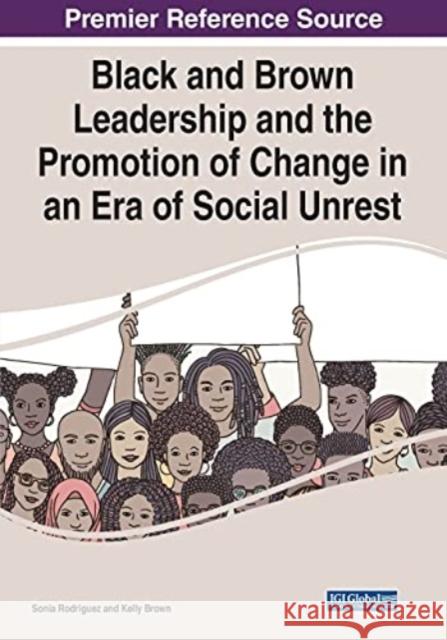Black and Brown Leadership and the Promotion of Change in an Era of Social Unrest » książka
Black and Brown Leadership and the Promotion of Change in an Era of Social Unrest
ISBN-13: 9781799872368 / Angielski / Miękka / 2021 / 384 str.
Black and Brown Leadership and the Promotion of Change in an Era of Social Unrest
ISBN-13: 9781799872368 / Angielski / Miękka / 2021 / 384 str.
(netto: 800,32 VAT: 5%)
Najniższa cena z 30 dni: 833,45 zł
ok. 30 dni roboczych
Bez gwarancji dostawy przed świętami
Darmowa dostawa!
The world was dealt a blow that included a pandemic and economic crisis as well as racial unrest, initiating an energized charge for social justice advocacy. The United States is currently facing an unprecedented challenge in ensuring that all citizens live in a fair, inclusive, and opportunity-rich society. These issues have heightened questions about racial justice that have been placated but can no longer be ignored. Marginalized communities cannot thrive if they continue to be oppressed, neglected, disinvested, and isolated from economic opportunity. The culture of allyship needs to be enacted thoughtfully and not performatively to create sustainable change through a critical mass of engaged advocates and activists. Many organizations enable the status quo by not confronting issues around race, gender, and equity. Leaders of color want a seat at the table as highly valued contributors for the transformation of a just and equitable America. By listening to the voices of Black and Brown leaders, the promotion of change in an era of social unrest will finally occur.
Black and Brown Leadership and the Promotion of Change in an Era of Social Unrest amplifies the voices of leaders who identify as Black, LatinX, Indigenous, or people of color as they navigate leadership during a time of tumultuous change and social unrest. More specifically, it portrays dilemmas that marginalized communities encounter while advocating for justice and social change within whitestream organizational systems. The chapters delve into the definitions, perceptions, and lived experiences of Americanism, identity, otherness, and racism as it relates to leadership and discusses the issues, dilemmas, struggles, and successes that persons of color experience in leadership roles in business and education. This book is valuable for practitioners and researchers working in the field of social justice leadership in various disciplines, social justice activists and advocates, teachers, policymakers, politicians, managers, executives, practitioners, researchers, academicians, and students interested in how leaders of color can succeed, navigate hostile spaces, and ultimately create a change in mindsets and practices that will lead to justice.











